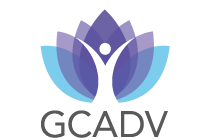By Sarah Brown
Director of Communications
When survivors of intimate partner violence choose to engage the criminal legal system as a means of holding their abusers accountable, GCADV supports their decision to do so. We also have come to realize that we can’t prosecute our way out of harm. A singular criminal legal response to domestic violence does not adequately address the problem, yet the criminal legal response is commonly considered “best practice” when seeking to address domestic violence. Since the politicization of the anti-violence movement, we have become heavily invested in the carceral system, and understandably so. We wanted people to take victim-survivors seriously. We wanted there to finally be “real consequences” for inflicting harm on an intimate partner. We wanted “justice.” But what we have come to understand over time is that the vast majority of survivors choose not to engage the criminal legal system because most victim-survivors don’t actually want their partner to go to jail; they just want the violence to stop, or they are afraid of being harmed or having their partner harmed by law enforcement; afraid of dual arrest, or afraid that not only will the criminal legal response not be helpful, but it might in fact exacerbate the violence.
We know that society at large is not set up to give victim-survivors alternatives to the criminal legal system when seeking justice for the harm they experienced. The majority of us are convinced that fundamentally when someone causes harm they need to be punished, and we often conflate punishment with accountability.
Mariame Kaba (2021) notes that increasing rates of incarceration have minimal impact on crime rates. Putting a few perpetrators in prison does little to stop the many other perpetrators. It does nothing to change a culture that makes this harm imaginable, to hold the individual perpetrator accountable, to support their transformation, or to meet the needs of the survivors. It rarely, if ever, encourages people to take responsibility for the harm they have caused…(Kaba, M. 2021. “We Do This Till We Free Us”, p.3)
In the same vein, over the last eight years, we have interviewed hundreds of women through the Justice for Incarcerated Survivors Program (see Justice for Incarcerated Survivors Program Update for program details) who risked freedom or death to save their lives or who were coerced into criminal activity under the threat of harm to themselves or their loved ones at the hands of an abusive partner. It has been our experience that self-defense laws are often interpreted narrowly when it comes to survivors, and data shows that between 71%-95% of women who are incarcerated have experienced violence from an intimate partner, creating an abuse-to-prison pipeline overrepresented by black, indigenous people of color (Kaba, 2021).
In The 2020 Moment of Truth letter, we agreed that as Advocates:
“We have held up calls for ‘victim safety’ to justify imprisonment and ignored the fact that prisons hold some of the densest per-capita populations of trauma survivors in the world.” And at the same time, “we have largely ignored and dismissed transformative justice approaches to healing, accountability, and repair – many of which were created by BIPOC leaders and used successfully in BIPOC communities….”
We believe that “all human beings have inherent value, even when they cause harm” (MOT, 2020), and as a Coalition, we went about holding ourselves to the task of collective care and responsibility. That has looked like making the decision to no longer support new policies that result in carceral solutions for those who cause harm, building our organization’s internal capacity to engage conflict in a principled way, and we have begun partnering with other community-based organizations to gain a greater understanding of transformative alternatives for victim-survivors across the state of GA.
We believe in addressing the root causes of violence. We believe public safety comes in the form of full access to safe and affordable housing, healthcare, good education, living wages, full employment, grocery stores, green spaces, and recreation. We believe not having access to these basic human needs is violence. When support and rehabilitation are necessary, we believe that looks like mental health services, drug treatment, and pre-arrest diversion.
We have an opportunity to truly invest in solutions that prevent violence, not solutions that promote it.
